|
|
 |
Archived Webinars - 2011
|
|
December 20, 2011 |
|
December 14, 2011 |
|
November 21, 2011 |
|
November 10, 2011 |
|
October 19, 2011 |
|
September 28th, 2011 |
|
August 30, 2011 |
|
July 19, 2011 |
|
June 29, 2011 |
| Brits, Brussels, and Biomass: The European Path Towards Renewable Heating |
June 15, 2011 |
| Large-Scale Biomass Thermal: District Energy and CHP |
May 25, 2011 |
| Biomass Energy Exports: Market Opportunities and Government Programs |
April 18, 2011 |
| Biomass Air Quality: Measuring, Controlling, and Regulating Emissions |
March 17, 2011 |
| Biomass Energy - A Policy Outlook: Programs, Legislation and the new Congress |
January 27, 2011 |

Biomass Thermal Markets Outlook: 2012-2015
December 20, 2011
Description:
Given the nation's current political and economic uncertainty, projecting business expansion and operating costs may prove difficult. Attend the webinar and gain insight into biomass thermal market forecasts from three leading companies in the bioenergy, woody biomass, and consulting sectors. Using resource availability mapping tools, research technology, and extensive market analyses, the presenters will share and explain their future projections for biomass thermal fuel and technologies through 2015 and beyond.
View this webinar and learn:
- How advanced data collection tools are used to predict biomass resource utilization
- How trends and developments in thermal technology will impact installations and thermal energy consumption
- Future federal and state policies that may "make or break" the biomass thermal industry
Biomass Thermal Markets Outlook: 2012-2015 from Biomass Thermal Energy Council on Vimeo.
Speakers:
 |
Jeffrey Eppink, President, Enegis LLC
Mr. Eppink is president of Enegis, LLC, a strategic consulting firm, which he founded. He has over 30 years of consulting, technical, and analytical experience in a wide variety of energy projects, topics and issues worldwide. Mr. Eppink directs and conducts strategic, analytical and technical work in power, biomass, carbon capture and storage, geothermal and oil and gas. He has given numerous presentations and testimony to senior industry executives, Department Secretaries, Congress and the White House on energy topics. Mr. Eppinkhas a BS (California Polytechnic), an MS (University of Southern California) and an MBA (Virginia Tech). |
 |
Amanda Hamsley Lang, Operations Manager, Forisk Consulting
As Operations Manager, Amanda Lang oversees consulting projects and the Forisk Continuing Education Program. She also leads Forisk's bioenergy research and serves as the Managing Editor of Wood Bioenergy US. Prior to working with Forisk, she interned with International Paper in Augusta, Georgia and conducted forestry operations research at the Warnell School of Forest Resources under Dr. Dale Greene. In addition, she was a National FFA Organization proficiency winner in the area of forest management and products. Amanda received BS and MS degrees in Forest Resources from the University of Georgia. |
 |
Seth Walker, Associate Economist, RISI Inc.
Seth Walker is an Associate Bioenergy Economist at RISI, since 2010. Seth’s current works on RISI’s North American Bioenergy Forecast and International Timber Service. Seth has also developed and initiated the RISI and PFI Pellet Manufacturing Survey, the first of its kind in North America. As a consultant at RISI, he has conducted fiber supply and site selection studies for the forest products and bioenergy industries. Seth had previously covered timber market pricing in the US South and Pacific Northwest with RISI’s Timber Transaction Price Service and Log Lines delivered log price report.
Seth joined RISI in March 2010. He holds a Bachelor of Science in Resource Economics and Commerce from the University of Rhode Island and a Master of Science in Environmental and Natural Resource Economics, also from URI. |
 |
Moderated by Joseph Seymour, BTEC Executive Director
Joseph Seymour has been coordinating the policy and regulatory activities of the Biomass thermal Energy Council since 2010. In this time, he has been responsible for the coordination of regulatory responses to Environmental Protection Agency (EPA) on various issues, including biomass boiler emissions limits and non-hazardous solid waste definitions; congressional hearings through structured statements, including the continuation of the Advanced Energy Manufacturing Tax Credit of U.S.C 48(C). |

Advanced Technologies for Biomass Thermal Heating
December 14, 2011
Description:
Biomass heating systems are amongst the oldest form of energy use, but manufacturers continue to advance the technology for increased convenience and safety. From fully automated boiler systems to cutting edge fuel processing, leaders in the industry work unceasingly to improve their products. This webinar will provide an overview of how to improve systems to meet customer's needs and local standards. Additionally, it will provide an opportunity to hear about policy and ways to expand the biomass industry.
View this webinar and learn:
- The most user-friendly residential heating technology
- Advanced processes in torrefied fuel production
- Large scale commercial design using different feedstocks
- How these advanced technologies will promote the biomass thermal industry
Advanced Technologies for Biomass Thermal Heating from Biomass Thermal Energy Council on Vimeo.
Speakers:
 |
Tom Miles, Consultant, T.R. Miles Technical Consultants, Inc.
Thomas R. Miles has been the principal of T.R. Miles Technical Consultants, Portland, Oregon, since 1997. He has designed, developed, installed and tested agricultural and industrial systems for fuel handling, air quality, and biomass energy since 1975. He is an expert in combustion and gasification of biomass fuels such as wood, straws, stalks and manures. He has conducted several engineering design, feasibility studies, and field tests for cofiring wood, straw and coal. Since 1994 he has sponsored and hosted internet discussions of biomass energy including improved cooking stoves, gasification and conversion to biochar. |
 |
David Frank, Co-founder, Sunwood Biomass
David Frank is co-founder of SunWood Biomass, a Biomass Heating systems integrator 130+ systems primarily in Vermont. David currently serves on the board of Renewable Energy Vermont; The Green Jobs Council, and on Vermont Technical College’s Curriculum advisory Board. David has advanced changes for biomass legislation and regulations in Vermont, with the mission of defining & growing clean, efficient, and sustainable wood heat. |
 |
Dave O'Connor, Biomass Program Manager, EPRI
Dave O’Connor has been a Project Manager at the Electric Power Research Institute for 25 years. Currently, he leads EPRI’s research activities in biomass supply and power generatioh. His prior work at EPRI focused on fuel quality work and previously worked for Bechtel Group. Mr. O’Connor is a graduate of the South Dakota School of Mines and Technology and holds a BS Mining Engineering. |
 |
Introduction by Joseph Seymour, BTEC Executive Director.
Joseph Seymour has been coordinating the policy and regulatory activities of the Biomass thermal Energy Council since 2010. In this time, he has been responsible for the coordination of regulatory responses to Environmental Protection Agency (EPA) on various issues, including biomass boiler emissions limits and non-hazardous solid waste definitions; congressional hearings through structured statements, including the continuation of the Advanced Energy Manufacturing Tax Credit of U.S.C 48(C). |

Regional Developments of Biomass Energy - Midwestern Region
November 21, 2011
Description:
This Midwestern-focused webinar is the final installment of a three-part mini-series highlighting biomass heating in different regions of the country. Attend the webinar and hear from three speakers as they discuss development of biomass heat in the Midwest, including a current overview of the region’s biomass heating use, discussion on barriers and opportunities for market development, and examination of successful biomass policies.
This is the twelfth webinar in a 14-part series hosted by the Biomass Thermal Energy Council (BTEC) and funded in part by the Forest Service's Wood Education and Resource Center (WERC).
View this webinar and learn:
- How the Midwest can sustainably manage private and public forests for biomass heat
- How wood heat can create jobs in the Midwest
- Ways to overcome technical and logistical challenges
- Successful policies on the state-level and how they may be implemented regionally
Regional Developments of Biomass Energy - Midestern Region from Biomass Thermal Energy Council on Vimeo
Speakers:
 |
Michael Curci, Business Development Manager and Retail Sales Consultant, Indeck Energy
Mike began his career in biomass at Green Circle Bio Energy located in Cottondale Florida before accepting a position with Indeck Energy as the Plant Superintendant and was later promoted to Manager of Business Development for BioFuel and BioPower. Mike is a member of the Pellet Fuel Institutes Board of Directors and is Chairmen of PFI’s Commercial Fuel Committee. He is also a member of the Heating the Midwest Steering Committee and Chairs the Demographics Action Team. |
 |
Becky Philipp, Project Development Coordinator, Agricultural Utilization Research Institute
Becky Philipp joined AURI in 2000. She is a Project Development Director for the northwest region and the west central region of the state with responsibility for identifying and evaluating opportunities in the areas of renewable energy and grain products. She has more than 20 years experience working with agricultural-related organizations, having worked for the USDA-Farm Service Agency as an Administrative/Program Technician for nine years prior to joining the organization.
Philipp was also born and raised on a farm in northwest Minnesota. She has completed a three-month intensive LeaderImpact / Leadership Program sponsored by the Northwest Minnesota Foundation in 2008. Philipp has a Bachelor of Arts degree in Criminal Justice with a concentration in Sociology and a minor in Political Science. |
 |
Pamela Porter, Midwest Office Director, Biomass Energy Resource Center
Pam Porter is Midwest office director in Madison, Wisconsin, where she leads BERC’s efforts in the lake states region. She is co- author of Heating with Biomass: A Feasibility Study of Wisconsin Schools Heated with Wood and Growing Wisconsin Energy: A Native Grass Pellet Bio-Heat Roadmap for Wisconsin. Before joining BERC, she served as senior advisor to Dane County Executive Kathleen Falk and to Wisconsin Governor Jim Doyle. Prior to that she served as executive director for Clean Wisconsin, a statewide environmental organization and as product development man- ager for Agrecol Corporation, the Midwest’s largest producer of native plants and seeds. Porter holds a BS in Agriculture and an MS in Agronomy from the University of Wisconsin, where she studied the use of switchgrass (Panicum virgatum L.) as a forage. |
 |
Moderated by Gregg Mast, V.P. - Agriculture & Biomass Business Cluster, BioBusiness Alliance of MinnesotaTM
Mr. Gregg Mast is Vice President – Agriculture & Biomass Business Cluster with The BioBusiness Alliance of Minnesota, an industry-led, action-based 501(c)(3) not-for-profit organization dedicated to the advancement of bioscience-related industries to create jobs for the citizens of Minnesota. Mr. Mast is responsible for convening and leading diverse stakeholder groups to develop long-term strategic direction for Minnesota in the areas of renewable energy, renewable materials and clean technology. He is also the founder of Earthtech Energy, an agricultural biomass company specializing in formulation and densification strategies for crop residues and other dedicated energy crops for the production of thermal energy. He received a B.A. from the University of Minnesota, Twin Cities, and an MBA from the Opus College of Business at the University of St. Thomas.
|
 |
Introductions by Joseph Seymour, BTEC Executive Director
Joseph Seymour has been coordinating the policy and regulatory activities of the Biomass Thermal Energy Council since 2010. In this time, he has been responsible for the coordination of regulatory responses to Environmental Protection Agency (EPA) on various issues, including biomass boiler emissions limits and non-hazardous solid waste definitions; congressional hearings through structured statements, including the continuation of the Advanced Energy Manufacturing Tax Credit of U.S.C 48(C). |

Regional Developments of Biomass Energy - Western Region
November 10, 2011
Description:
As a region with a large geographic distribution and long history of utilizing plentiful biomass resources, the West may consider itself the birth place of advanced biomass heating – utilizing biomass pellets and efficient stoves. Although covered with vast tracts of federal land and low comparative energy costs, the West has the potential to make biomass thermal energy competitive, by pursuing public policy that promotes biomass, especially in rural areas.
This Western-focused webinar is the second installment of a three-part mini-series highlighting biomass heating in different regions of the country. Attend the webinar and hear from three speakers as they discuss development of biomass heat in the West, including a current overview of the region’s biomass heating use, discussion on barriers and opportunities for market development, and examination of successful biomass policies.
This is the eleventh webinar in a 14-part series hosted by the Biomass Thermal Energy Council (BTEC) and funded in part by the Forest Service's Wood Education and Resource Center (WERC).
View this webinar and learn:
- How the West can sustainably manage private and public forests for biomass heat
- How wood heat can create jobs in the West
- Ways to overcome technical and logistical challenges
- Successful policies on the state-level and how they may be implemented regionally
Regional Developments of Biomass Energy - Western Region from Biomass Thermal Energy Council on Vimeo.
Speakers:
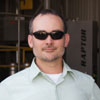 |
Chad Davis, Director Forest Stewardship Program, Sustainable Northwest
Chad works with Forest Stewardship Program partners and communities to link them to opportunities that strengthen market channels for the byproducts of ecologically-based forest stewardship. Chad's interest in market-based conservation strategies that create opportunity for individuals at the community level drew him to Sustainable Northwest. He also works to affect Federal and state policy, striving to ensure that rural entrepreneurs and leaders have equitable access to developing appropriately scaled renewable energy projects. Chad is the co-chair of the Biomass and Energy Working Group for the Rural Voices for Conservation Coalition and also co-chairs the Oregon Forest Biomass Working Group. In his spare time Chad enjoys strapping on his backpack to survey the alpine flora of the Northwest and pedaling past the hopfields and vineyards throughout the Willamette Valley. |
 |
Marcus Kauffman, Biomass Resource Specialist, Oregon Department of Forestry
Marcus Kauffman is the Biomass Resource Specialist for the Oregon Department of Forestry. In this position he provides project development assistance and biomass supply information to public and private interests across the state.
Marcus has extensive experience developing public-private partnerships to improve natural resource and sustainable economic development opportunities. He has led collaborative to address renewable energy, energy efficiency, biomass utilization, ecosystem restoration, sustainable forestry, and community fire protection planning. His approach to rural development seeks integrated solutions for the local economy and the natural environment.
Prior to joining the Oregon Department of Forestry, Marcus owned an independent consultancy, East Fork Consulting that focused on developing collaborative solutions to advance the green economy. The consultancy provided information and analysis to advance renewable energy solutions, in particular woody and agricultural biomass energy and collaborative forest management, with an emphasis on viable community-scale solutions.
In addition to bio-energy efforts, Marcus has facilitated numerous collaborative forest and watershed restoration efforts and technical assistance to a variety of natural resource collaborations.Marcus has a Courtesy Faculty appointment with the Institute for a Sustainable Environment at the University of Oregon. He serves on the Oregon Forest Biomass Working Group and was a member of Oregon Governor’s John Kitzhaber Biomass Policy Transition Team. |
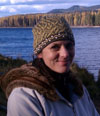 |
Angela Farr, Regional Biomass Utilization Coordinator for Regions 1 & 4, USDA Forest Service
Angela Farr is a Biomass Utilization Coordinator for State & Private Forestry in the Northern and Intermountain Regions. She holds an M.S. in Environmental Studies from the University of Montana and a bachelor’s degree from Whitman College in Walla Walla, Washington. As part of the nationally recognized Fuels for Schools Initiative, Angela has facilitated a dozen woody biomass heating projects in the state of Montana, and shared her expertise with regional and national audiences. As part of the Fuels for Schools Implementation Team, Angela received the Chief’s award for Excellence in Technology Transfer in 2005. Angela loves living in Missoula, Montana with her husband and two wonderful daughters. |
 |
Moderated by Joseph Seymour, BTEC Acting Executive Director
Joseph Seymour has been coordinating the policy and regulatory activities of the Biomass thermal Energy Council since 2010. In this time, he has been responsible for the coordination of regulatory responses to Environmental Protection Agency (EPA) on various issues, including biomass boiler emissions limits and non-hazardous solid waste definitions; congressional hearings through structured statements, including the continuation of the Advanced Energy Manufacturing Tax Credit of U.S.C 48(C). |

Regional Developments of Biomass Energy - Northeast Region
October 19, 2011
Description:
As a region with cold winters and a long heating season, the Northeast has a high demand for heating fuels, which are mostly provided for by imported heating oil. However, the Northeast is in a unique position to utilize a cheap, renewable and regional heating fuel – biomass. The biomass market in the region is characterized by a large amount of available woody fuel, developed supply chains and progressive policy towards biomass heating compared to other regions of the nation.
This webinar is the first installment of a three-part mini-series highlighting biomass heating in different regions of the country. It will provide a current overview of biomass heating in the northeast, discuss barriers and opportunities for market development and examine successful policies that promote biomass use in the northeast.
Hear from three speakers as they present cutting-edge research about biomass heat in the northeast. This is the tenth webinar in a 14-part series hosted by the Biomass Thermal Energy Council (BTEC), supported by the Northeast Biomass Thermal Working Group (www.nebioheat.org), and funded in part by the Forest Service's Wood Education and Resource Center (WERC).
View this webinar and learn:
- The Northeast’s vast resource potential for biomass heat
- How wood heating can help create jobs in the Northeast
- Ways to overcome technical and logistical challenges
- Successful policies on the state-level and how they may be implemented regionally
Regional Developments of Biomass Energy - Northeast Region from Biomass Thermal Energy Council on Vimeo
Speakers:
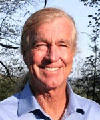 |
William Strauss, PhD, President, FutureMetrics
Bill is the President and founder of FutureMetrics. He is recognized as a leading expert on policy and project development in the renewable energy sector, proven by his more than thirty five years of strategic planning, modeling, and data analysis experience. Bill is also the managing partner with FutureEnergy Partners. |
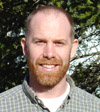 |
Scott Nichols, President, Tarm Biomass
Scott Nichols graduated with B.S. in Law and Public Policy from the School of Management at Syracuse University in 1993. From 1995 to 2006 Mr. Nichols assisted with operations of Tarm Biomass, Inc. a family run company, importing and distributing biomass boilers for three European manufacturers. Since 2006 he is the owner of Tarm Biomass, Inc. He ran an active hearth shop in Lyme, NH from 1995-2005, with a predominant number of sales in wood and wood pellet burning appliances. His company introduced the first
bulk-fed residential pellet boilers, lambda controlled cordwood boilers, the first fully automatic residential pellet boilers, and re-introduced the
concept of mass thermal storage to North American biomass boiler users in
1998. Mr. Nichols is an original founder of the Biomass Thermal Energy Council,
the Northeast Thermal Biomass Working Group, and the Heating the Northeast
Biomass Conference. |
_edit_copy.gif) |
Neil Veilleux, Project Consultant, Meister Consultants Group
Neil Veilleux is a consultant at Meister Consultants Group (MCG), an international sustainability consulting company based in Boston. By applying participation, dialogue, and analytical tools, MCG enables clients to create successful sustainability strategies and policies. Mr. Veilleux is currently leading a team for the Massachusetts Department of Energy Resources that is engaging business and government stakeholders to assess impacts and opportunities for renewable heating technologies – including biomass thermal, solar thermal, high efficiency heat pumps, and biodiesel. In past projects, Mr. Veilleux served as the Renewable Energy Fellow for the National Farmers Union and Heinrich Böll Foundation’s 2011 Midwest Renewable Energy tour. In this capacity, he worked with farmers, policy-makers, and other experts to explore how policy measures could enhance renewable energy opportunities for farmers. Mr. Veilleux has also served as a Rappaport Public Policy Fellow at Harvard’s Kennedy School of Government and a Fulbright scholar in Germany. He has a MA in Urban and Environmental Policy and Planning from Tufts University and a BA from Sewanee: the University of the South. |
 |
Moderated by Joseph Seymour, Executive Director, Biomass Thermal Energy Council
Joseph Seymour has been coordinating the policy and regulatory activities of the Biomass thermal Energy Council since 2010. In this time, he has been responsible for the coordination of regulatory responses to Environmental Protection Agency (EPA) on various issues, including biomass boiler emissions limits and non-hazardous solid waste definitions; congressional hearings through structured statements, including the continuation of the Advanced Energy Manufacturing Tax Credit of U.S.C 48(C). |

Agricultural and Woody Biomass: Contrasts and Comparisons
September 28th, 2011
Description:
Though many people are familiar with wood for thermal energy, agricultural residues and energy crops present another feedstock source for continued growth of the biomass thermal market. This webinar will examine the similarities and differences between woody and non-woody biomass with regards to supply, feedstock processing, and combustion. Additionally, the webinar will identify opportunities and challenges for expanding agricultural biomass to new markets and end users.
Hear from three speakers as they share research and first-hand experience highlighting the similarities and differences of between woody and agricultural biomass for thermal applications. This is the ninth webinar in a 14-part series hosted by the Biomass Thermal Energy Council (BTEC), and funded in part by the Forest Service's Wood Education and Resource Center (WERC).
View this webinar and learn:
- Creating and utilizing sustainable supply chains for agricultural feedstocks
- Assessing which fuel works best for end-users
- New technologies and appliances to accommodate various ag-based fuels
- Examples of successful innovative market opportunities
Agricultural and Woody Biomass – Contrasts and Comparisons from Biomass Thermal Energy Council on Vimeo
Speakers:
 |
John Bootle, Founder, Renewable Energy Resource
John Bootle has a strong engineering and business background. He has a Physics degree from Bath University (UK) and is a qualified Chartered Engineer (UK equivalent of US PE). Initially John worked in industry carrying out the structural and electrical engineering design of projects in the UK, Europe and Middle East. In 1987 John moved to the USA as the business development manager for an aerospace company, he then when on to form his own company in 1997. After selling his interest in 2009, John teamed up with Adam Dantzscher to form Renewable Energy Resources, (RER) with the mission to produce and sell grass biomass. After carrying out the basic research RER is now producing switchgrass briquettes for customers. RER is also designing and building its own crop biomass compacting machines and working with customers to use crop biomass for simple heating or combined heat and power projects in the NE USA. |
 |
Steve Flick, Chairman of the Board, Show Me Energy Cooperative
Steve Flick is currently Chairman of the Board of Show Me Energy Cooperative in Centerview, Missouri, a cellulosic biomass facility owned by 612 farmers. The 10 million dollar project has been completed and is operational, developing and processing energy crops and agricultural residues into biomass engineered fiber fuel. Show Me Energy Coop was the first project area in the United States with BCAP in 2011with USDA
Steve is a graduate of University of Missouri Columbia with a Bachelor of Science in Agriculture and Masters in Environmental Ecology/Biochemistry. Mr. Flick is a trained Environmental Ecologist and has consulted for 20 years for EPA, D.O.D., and D.O.E. along with several state agencies.
He is participating with the Meridian Institute council for Sustainable Biomass Production, Farm Bureau, Sierra Club and is a plenary speaker for Bioenergy conferences throughout the world. He is also involved in the Midwest Governor’s Carbon Task Force on carbon. |
 |
Paul Cerosaletti, Senior Educator, Cornell Cooperative Extension
Paul Cerosaletti is an extension educator with Cornell University Cooperative Extension of Delaware County. He is part of a team that has developed and implemented the Catskill Grass BioEnergy Project over the last three years, which is a production to consumption research and demonstration project using locally produced grass pellets to heat a variety of local municipal and community organization buildings in the Catskill Region of New York State.
Paul received his BS degree in agronomy from Cornell University in 1989 and his MS from Cornell University in 1998. He has worked for Cornell Cooperative Extension of Delaware County for 19 years. |
 |
Moderated by Joseph Seymour, Executive Director, Biomass Thermal Energy Council
Joseph Seymour has been coordinating the policy and regulatory activities of the Biomass thermal Energy Council since 2010. In this time, he has been responsible for the coordination of regulatory responses to Environmental Protection Agency (EPA) on various issues, including biomass boiler emissions limits and non-hazardous solid waste definitions; congressional hearings through structured statements, including the continuation of the Advanced Energy Manufacturing Tax Credit of U.S.C 48(C).
He has also developed a series of legislative factsheets to inform constituents and industry stakeholders on pending federal biomass regulations and legislation, and led the production of numerous webinars on pertinent biomass issues, such as emissions regulation, policy developments, and residential and commercial technology applications. |

Public Perceptions of Biomass Thermal Energy: Identifying Sentiment, Overcoming Challenges
August 30, 2011
Description:
Hear from three speakers as they share research, findings, and first-hand experience on the public’s perception of biomass thermal energy. Although biomass is a renewable resource for baseload heating and combined heat and power (CHP), its use has not been without controversy. Project developers, vendors, and fuel producers should recognize and address the public and community’s concerns over emissions, resource use, and incentives for biomass thermal installations.
View this webinar and learn:
- The top public misconceptions on biomass use, and where these misconceptions originate
- How to engage community leaders in biomass thermal project development
- Successful methods for communicating biomass thermal benefits
- Real-world examples of successful and failed community involvement
- Answers from the panelists during a live Q&A session
Public Perceptions of Biomass Thermal Energy: Identifying Sentiment, Overcoming Challenges from Biomass Thermal Energy Council on Vimeo
Speakers:
|
Honey Rand, PhD - President, Environmental PR Group
The Environmental PR Group deals with the public side of environmental communications, conflict, and advocacy. As subject area specialists, they understand the critical relationships between power and water, air and land, waste management and conservation.
Honey works for people she likes and causes she believes in. Sustainable development, green energy technologies, conservation devices and services; her clients from across the U.S., represent the businesses, governments and people that demonstrate investment in innovation has a triple bottom line: good for business, good for the community, good for the environment.
Honey has a B.S., M.A. and Ph.D. in Communication and is professionally accredited by the Public Relations Society of America, where she is also a Fellow.
She is author of the book Water Wars: A Story of People, Politics and Power. |
|
Richard Plate, PhD - Post-Doctoral Researcher, University of Florida
Richard Plate is a post-doctoral researcher in the School of Forest Resources and Conservation at the University of Florida. His research focuses on how individuals learn about and make decisions regarding complex environmental systems. |
|
Eric Kingsley - Vice President, Innovative Natural Resource Solutions
Eric Kingsley serves as vice-president of Innovative Natural Resource Solutions LLC (INRS), a natural resource industries consulting firm with offices in New Hampshire and Maine.
Since joining INRS in 2000, he has worked with dozens of parties on the development of new biomass energy facilities around the country, including a key role in the development of New England’s only new biomass power plant. Eric has extensive experience with wood supply and economics for biomass use in electric, thermal and liquid fuel projects.
Eric has recently worked with developers of biomass energy projects in Virginia, New Hampshire, New York, Maine, Vermont, Maine, Massachusetts, North Carolina, Missouri, Georgia and California. Eric has recently developed a unique tool for owners and investors of large-scale biomass facilities to manage fuel cost risk – potentially removing one of the largest barriers to large-scale industry growth.
Eric has a Master’s Degree in Resource Economics from the University of New Hampshire, and served for five years as executive director of the New Hampshire Timberland Owners Association, a trade association representing all sectors of that state’s forest industry. |
|
Moderated by Joseph Seymour, Executive Director, Biomass Thermal Energy Council (BTEC)
Joseph Seymour has been coordinating the policy and regulatory activities of the Biomass thermal Energy Council since 2010. In this time, he has been responsible for the coordination of regulatory responses to Environmental Protection Agency (EPA) on various issues, including biomass boiler emissions limits and non-hazardous solid waste definitions; congressional hearings through structured statements, including the continuation of the Advanced Energy Manufacturing Tax Credit of U.S.C 48(C).
He has also developed a series of legislative factsheets to inform constituents and industry stakeholders on pending federal biomass regulations and legislation, and led the production of numerous webinars on pertinent biomass issues, such as emissions regulation, policy developments, and residential and commercial technology applications. |
Future of Residential Wood & Pellet Heat in America
July 19, 2011
Description:
View the webinar from the Alliance for Green Heat and the Biomass Thermal Energy Council to explore how federal and state governments can prepare for an increased use of residential wood heat. While more and more households are turning to wood heat as an affordable alternative to fossil fuels, there are barriers to the growth of clean and efficient wood heart. Non-profit, industry and air quality experts will identify these barriers and outline methods for policy makers to overcome them.
The Future of Residential Wood & Pellet Heat in America from Biomass Thermal Energy Council on Vimeo
Speakers:
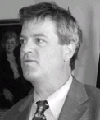 |
Charlie Niebling, Chair, Biomass Thermal Energy Council
"Federal Policy Landscape in the US and Europe for Thermal Biomass" |
 |
Jon Strimling, CEO, American Biomass
"Scaling Up Residential Biomass: European and Americas Case Studies" |
|
John Ackerly, President, Alliance for Green Heat
"Policy Opportunities for Incentivizing Wood Heat at the State Level" |
 |
Rachel Sakata, Oregon DEQ
"Strategies to Reduce Particulates from Wood Heating Appliances" |
 |
Moderator
Tatiana Butler, Program Director, Alliance for Green Heat |
|
Welcome
Joseph Seymour, Executive Director, Biomass Thermal Energy Council |

Biomass Thermal Finance: Options, Steps, and Resources for Biomass Project Development
June 29, 2011
Description:
Rising fossil fuel costs and environmental concerns are raising interest in wider use of biomass for heating and combined heat and power applications. As with any capital intensive projects, biomass thermal energy project developments must make sense on paper before implementation can begin. Yet, these projects often weigh different financial approaches than other energy sources.
View the webcast, “Biomass Thermal Finance: Options, steps, and resources for biomass project development,” from the Biomass Thermal Energy Council (BTEC), and hear from three experienced panelists on their insights into financing models for varying scales of biomass thermal projects. This is the seventh webinar in a series funded in part by the USDA's Wood Education and Resource Center (WERC).
This free webinar highlights successful financing models for commercial to industrial sized biomass energy facilities with a focus on thermal energy production. Watch and learn:
- Considerations for making a project financeable and increasing project success
- Financing options for large, industrial scale biomass facilities
- How community sized projects leverage public support and incentives
- Why environmental commodities may add increased value to biomass thermal projects
- How real world projects combine local, state, federal, and international financial resources
Biomass Thermal Finance: Options, Steps, and Resources for Biomass Project Development from Biomass Thermal Energy Council on Vimeo
Speakers:
|
Greg Montgomery, Managing Partner, Abundant Power
Prior to joining Abundant Power as a Managing Partner, Greg was the Founder and Managing Director of MCF Advisors in Charlotte, NC, a boutique investment banking firm providing mergers and acquisitions advice and capital formation strategies to privately-held middle market businesses, with a focus over the past several years on the energy industry, and particularly renewables including the solar, methane, biodiesel and carbon credit sectors. Previously he was the Managing Director of the Royal Bank of Canada’s internal investment banking unit for its commercial banking operations based in Charlotte, NC, and prior to that a co-founder and Managing Director of Capital Investment Partners, a private investment banking firm focused on small to middle market transactions in Raleigh, NC. Previously, Mr. Montgomery practiced corporate and securities law in Raleigh, NC and Baltimore, MD. He received a JD/MBA from Tulane University, a BA in Environmental Sciences from the University of Virginia, and his preparatory education at the Hotchkiss School.
Mr. Montgomery is a member of the North Carolina and Maryland State Bars and is a registered representative and investment advisor with Securities Network, LLC and holds his Series 7, 65, and 24 licenses. He has been a founder of and served as a director of numerous privately held companies. He is a member of the Board of Directors and ex-President for the Charlotte chapter of the Association for Corporate Growth. He is also a member of the Board of Managers for Camp Thunderbird which is affiliated with the Charlotte Greater Metropolitan YMCA and the Head of the Outreach Committee for St. Mark’s Episcopal Church in Gastonia, NC, where he resides with his wife and two children. |
|
Fred Reagan, Facilities Director, Merrimack Valley School District
Fred has worked for the Merrimack Valley School District for 18 years. He started out working as a custodian in 1992. He has held the Facilities Director's position since 1997. He and his department have overseen construction projects totaling $35,000,000 dollars. These projects include a new 66,000 square foot elementary school as well as additions and renovations to several schools, a total renovation to the high school, a new bus garage and the bio mass wood chip heat plant. He lives in Boscawen, NH with his wife Andrea and two youngest children Tyler and Emily. |
|
Dan Kuipers, Managing Partner, Sustainable Energy Financing, LLC
Dan is a Co-Founder and Managing Partner of Sustainable Energy Financing and recently became one of the first in the United States to be certified as a GHG Inventory Quantification specialist. He has three years experience in project management and development of biomass utilization implementation projects as well as other renewable energy applications. His work concentration includes development of US based carbon offset projects, securing grant funding for energy efficiency and renewable energy projects, and consulting on sound energy and carbon reduction strategies for energy, agricultural, and other natural resource based companies.
As Managing Partner of SEF, LLC, Dan focuses on the promotion of widespread adoption of renewable energy and energy efficiency technologies for multiple applications across many industry sectors. Dan’s work has leveraged over $40 M of project investment in the past 3 years in the United States. Dan is author of first validated Project Design Document in the USA utilizing AMS I.C., providing carbon credits for the utilization of biomass in place of fossil fuels for thermal heating purposes.
Dan graduated from Grand Valley State University with a Bachelor of Science with an emphasis on Energy, Economics and Sustainability. Dan is often asked to be a guest speaker/lecturer in classes throughout multiple disciplines and was named Sustainability Champion in 2009. Dan also was instrumental in driving GVSU’s Michigan and Alternative Renewable Energy Center to utilize existing Solar Renewable Energy Credits as an additional revenue stream for their installed solar PV system. Dan also sits on the Holland Community Energy Advisory Group and Holland Mayor’s Energy Task Force Committees showing a dedication and commitment to his local community. Through active advocacy and information dissemination, Dan strives to ensure that sustainability is a topic that remains high on the community’s list of goals. |
|
Moderated by Joseph Seymour, Program Coordinator Policy and Government Affairs, Biomass Thermal Energy Council (BTEC)
Joseph Seymour is coordinating the policy and regulatory activities of the Biomass thermal Energy Council since 2010. In this time, he has been responsible for the coordination of regulatory responses to Environmental Protection Agency (EPA) on various issues, including biomass boiler emissions limits and non-hazardous solid waste definitions; congressional hearings through structured statements, including the continuation of the Advanced Energy Manufacturing Tax Credit of U.S.C 48(C).
He has also developed a series of legislative factsheets to inform constituents and industry stakeholders on pending federal biomass regulations and legislation, and led the production of numerous webinars on pertinent biomass issues, such as emissions regulation, policy developments, and residential and commercial technology applications.
Joe holds a degree in Political Science and Psychology at Hope College, Holland, MI. |

Brits, Brussels, and Biomass: The European Path Towards Renewable Heating
June 15, 2011
Description:
Imagine the impact on U.S. jobs and local economies if 95% of new domestic heating appliances used renewable fuels and avoided costly oil imports. In several European countries, renewable heating is fast becoming a reality, and other nations are taking note of these examples to successfully displace fossil fuel use.
Watch the free webcast, “Brits, Brussels, and Biomass: The European Path Towards Renewable Heating,” on Wednesday, June 15 at 12PM ET by the Biomass Thermal Energy Council (BTEC), and hear from three highly distinguished panelists on their countries’ paths toward renewable heating. This is the sixth webinar in a series funded in part by the USDA's Wood Education and Resource Center (WERC).
This free webinar will connect attendees with their European counterparts to learn the successes and failures of 20+ years of renewable heating policy. Attend and learn:
- Why countries like Austria and Britain have recognized the potential of renewable heating
- How the European Union has taken action to encourage renewable heating policies in the member states
- How strong, consistent public policy supportive of renewable heat can change energy consumption in a region
- Which challenges these countries had to overcome and how
- What incentives have proven highly successful and could be implemented in the U.S
Webinar - Brits, Brussels, and Biomass: The European Path Towards Renewable Heating from Biomass Thermal Energy Council on Vimeo.
Speakers:
|
Günter Hörmandinger, First Counselor – Environment, Delegation of the European Union to the United States of America
Günter Hörmandinger is the Environment Counselor at the EU Delegation to the United States in Washington. Prior to his appointment in April 2010 he was an official at the European Commission's Directorate-General for Environment, where since 2005 he was heading the team in charge of road vehicle emissions (both air pollutants and greenhouse gases) and EU legislation on the CO2 emissions from passenger cars.
Earlier appointments with the European Commission since 1997 included work on trans-European energy networks and on the environmental impacts of transport policy. Before joining the European Commission he worked as a researcher in physics and as an independent consultant on the environmental and economic aspects of new technologies in energy and transport.
His original qualifications are a Ph.D. in physics at the Technical University of Vienna and a M.Sc. in environmental technology at Imperial College, London. |
|
Andrej Miller, Policy Manager, Renewable Heat Incentive, U.K. Department of Energy and Climate Change
Andrej Miller is a policy manager in the Renewable Financial Incentives team at the Department of Energy and Climate Change. His role is policy development of the Renewable Heat Incentive and he is specifically responsible for scheme criteria above household scale.
He has worked in energy for over 5 years in posts which included working on the Feed-in Tariffs for small scale electricity, the Energy Act 2008 and the Energy White Paper 2007. |
|
Christiane Egger, Deputy Director, Upper Austrian Renewable Energy Agency
Christiane Egger is the Deputy Director of the Upper Austrian Renewable Energy Agency and the manager of the Ökoenergie-Cluster, a network of 150 companies active in renewable energy and energy efficiency. Christiane is also the Vice-President of FEDARENE, the European network of regional energy and environment agencies.
She is also the conference director of the World Sustainable Energy Days, one of the largest annual conferences in Europe on energy efficiency and renewable energy sources. Christiane is an expert in energy efficiency in buildings, in solar and biomass heating and in dissemination and promotion of sustainable energy production and use.
She holds a law degree and a post-graduate degree in environmental engineering. |
|
Joseph Seymour, Program Coordinator - Policy and Government Affairs, Biomass Thermal Energy Council (BTEC)
Joseph Seymour is coordinating the policy and regulatory activities of the Biomass thermal Energy Council since 2010. In this time, he has been responsible for the coordination of regulatory responses to Environmental Protection Agency (EPA) on various issues, including biomass boiler emissions limits and non-hazardous solid waste definitions; congressional hearings through structured statements, including the continuation of the Advanced Energy Manufacturing Tax Credit of U.S.C 48(C).
He has also developed a series of legislative factsheets to inform constituents and industry stakeholders on pending federal biomass regulations and legislation, and led the production of numerous webinars on pertinent biomass issues, such as emissions regulation, policy developments, and residential and commercial technology applications.
Joe holds a degree in Political Science and Psychology at Hope College, Holland, MI. |
|
Emanuel Wagner, Moderator, Outreach, Program Coordinator - Education and External Affairs, Biomass Thermal Energy Council (BTEC)
Emanuel Wagner is a Project Coordinator at for Technology Transitions Corporation (TTC), the association management company of the Biomass Thermal Energy Council (BTEC). For BTEC, Emanuel’s focus is the coordination and facilitation of various education and outreach activities. He is also responsible for membership communication and development.
Within TTC, Emanuel is engaged in business development, and multiple projects related to electric energy storage for the Electric Power Research Institute (EPRI). He also supports TTC’s international activities in hydrogen and fuel cells. |

Large-Scale Biomass Thermal: District Energy and CHP
May 25, 2011
Description:
Listen to "Large-Scale Biomass Thermal: District Energy and CHP," a free webinar by the Biomass Thermal Energy Council (BTEC), and hear from three distinguished panelists on their experiences implementing biomass-fueled combined heat and power (CHP) and district energy systems. This is the fifth webinar in a series funded in part by the USDA's Wood Education and Resource Center (WERC).
Rising energy costs, environmental concerns, and technological advances have opened the door for biomass to meet large-scale heating and power requirements nationwide. Yet, end users including businesses, municipalities, and industry may have questions on using this renewable resource efficiently and cost effectively. This free webinar will review biomass-fueled CHP and district energy technologies and impart lessons learned from flagship projects.
Learn:
- How district energy and CHP systems use biomass as a fuel;
- What government initiatives are supporting these systems;
- How District Energy St. Paul became the face of biomass district energy;
- What can be done to right-size a biomass CHP system for a facility's needs;
- 'Lessons learned' from system installation and operation;
- And engage the speakers in a Question & Answer session.
Webinar - Large-Scale Biomass Thermal: District Energy and CHP from Biomass Thermal Energy Council on Vimeo
Speakers:
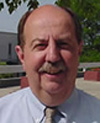 |
John Cuttica - Director, Midwest CHP Regional Application Center, and Director, Energy Resources Center, University of Illinois at Chicago
John Cuttica is presently the Director of the Energy Resources Center located at the University of Illinois at Chicago. John also serves as the Director of the Midwest Clean Energy Application Center, which was established by DOE in 2001 as the first of its kind Center to promote the use of Combined Heat and Power (CHP), District Energy, and Waste Heat Recovery in the 12 State Midwest Region.
John has been in the energy field for over 25 years, with most of his career spent in the energy R&D area, having held the position of VP of End Use Research at the Gas Research Institute for more than ten years.
Mr. Cuttica holds an undergraduate degree in electrical engineering from the Catholic University of America in Washington DC and a Masters in Engineering Administration from the George Washington Univ. also located in Washington DC. |
 |
Michael Burns - Senior Vice President of Operations and Engineering, Ever-Green Energy
Michael Burns is the Senior Vice President of Operations and Engineering for Ever-Green Energy. Burns has worked for District Energy and its affiliated companies since 1998. He is responsible for the operation and maintenance of the energy generation facilities and distribution systems for District Energy and District Cooling. Burns has been instrumental in the implementation of a 33-MW, biomass-fired combined heat and power facility, development of the renewable fuel market for the CHP plant, and integration of this facility into the local energy delivery system. Under his leadership, District Energy and District Cooling operations have achieved best-in-class reliability while experiencing rapid rates of growth.
He has more than 18 years of engineering and managerial experience in all aspects of energy facility operations and project implementation, from large electric utility generating units to renewable energy and CHP installations. Burns has a B.S. in Mechanical Engineering from the University of Notre Dame and an M.B.A. from the Kellogg Graduate School of Management at the Northwestern University. |
 |
Jonathan Wilkinson - Senior Vice President, Business Development, Nexterra Systems Corp.
Prior to joining Nexterra, Jonathan was President and CEO of QuestAir Technologies – a publicly traded technology company with activities in clean energy and traditional energy markets. Prior to assuming the CEO role Jonathan held the positions of COO and Vice-President, Business Development. Before joining QuestAir, he was a Manager at Bain and Company, one of the world's leading strategy-consulting firms. Jonathan also has previous experience in the public sector having served as a constitutional negotiator, a federal-provincial relations specialist, and a Special Advisor to a provincial Premier.
A Rhodes Scholar, Jonathan has obtained degrees from the University of Saskatchewan, Oxford University, and McGill University. Jonathan is presently Vice-Chair of the Walter and Duncan Gordon Foundation and is the immediate past-Chair of the British Columbia Technology Industries Association (BCTIA). |
|
Moderator
Joseph Seymour, Program Coordinator - Policy and Government Affairs, BTEC
Joseph Seymour is coordinating the policy and regulatory activities of the Biomass thermal Energy Council since 2010. In this time, he has been responsible for the coordination of regulatory responses to Environmental Protection Agency (EPA) on various issues, including biomass boiler emissions limits and non-hazardous solid waste definitions; congressional hearings through structured statements, including the continuation of the Advanced Energy Manufacturing Tax Credit of U.S.C 48(C).
He has also developed a series of legislative factsheets to inform constituents and industry stakeholders on pending federal biomass regulations and legislation, and led the production of numerous webinars on pertinent biomass issues, such as emissions regulation, policy developments, and residential and commercial technology applications.
Joe holds a degree in Political Science and Psychology at Hope College, Holland, MI. |

Biomass Energy Exports: Market Opportunities and Government Programs
April 18, 2011
* Due to DOC policy, the webinar recording no longer accessible; however, the slides from the presentation are available below.
Description:
Has your company considered exporting its biomass products? Are you aware of government export programs available to help you? The webinar "Biomass Energy Export - Market Opportunities and Government Programs," co-hosted by the U.S. Dept. of Commerce (DOC) and the Biomass Thermal Energy Council (BTEC) answers these questions.
Organized through the Renewable Energy and Energy Efficiency Export Initiative (RE4I), this webinar will address key federal government export promotion programs and highlight opportunities related to the export of biomass feedstock and equipment.
"When the Renewable Energy and Energy Efficiency Export Initiative was launched last December, we made certain to include the biomass energy market, because it offers huge opportunities for U.S. companies" said Cora Dickson, Renewable Energy Specialist at DOC. "This webinar will help bioenergy companies better understand the federal government programs and financing available for the export of their products."
The free webinar provides a focus on key elements of the RE4I, takes a quick look at the German market, and an overview various federal government resources that U.S. biomass companies can leverage.
- Learn the current status and future direction of exports for the biomass energy industry.
- Find out why there is demand for U.S. biomass related equipment, fuel/feedstock, and services in several key markets.
- Identify market entry strategies and challenges.
- Find out what you need to know about enhanced assistance available to U.S. renewable energy exporters.
Speakers:
|
Andrea Stahl, Commercial Specialist, U.S. and Foreign Commercial Service, Germany
Andrea Stahl covers the following industries: renewable energy, pollution control, environmental industries and water resource equipment, advertising services, and – temporarily - financial services. She is a member of the Environmental Team, as well as the Energy Team.
She is based in the U.S. Consulate General in Frankfurt.
Ms. Stahl provides counseling and outreach activities designed to increase the number of small and medium-sized U.S. businesses exporting to Germany and assists U.S. firms in general by providing a broad range of services. She is a German national and holds a M.A. in Slavonic Studies and Sinology. After working for a management consulting company, she joined the Commercial Service in 1994. |
|
Richard Ginsburg, Senior International Trade Specialist, Small Business Administration
In July 1990, Richard Ginsburg joined the SBA as a business development specialist in the Office of Entrepreneurial Development. He is a former small business manager (women’s retail clothing) and bank-marketing officer. In his current position, Mr. Ginsburg serves as the Senior International Trade Specialist and Public Affairs Officer, Office of International Trade. He has been a keynote speaker on economic development at several domestic and international conferences on small business and has also led 4 successful small business trade missions abroad.
Mr. Ginsburg has provided Agency briefings at the U.S. Foreign Service Institute, where new assignees in the Foreign Commercial Service (U.S. Dept. of Commerce) and the Foreign Service (US Dept. of State) receive their training before transferring to U.S. embassies around the world. He has also participated in Agency briefings to other Federal agencies in Washington, D.C, served as a member of the U.S. Trade Representative’s Trade Capacity Building group during Free Trade Agreement negotiations, and is SBA’s staff representative to the President’s Export Council and the Asia Pacific Economic Cooperation (APEC) Small Business Working Group. |
|
Hannelene Beillard, Director of the Environmental Group, Export-Import Bank
Hannelene Beillard currently serves as a business development officer in the Office of Renewable Energy and Environmental Exports at the Export-Import Bank (“Ex-Im Bank). The Office of Renewable Energy and Environmental Exports was established in 2008, and helped Ex-Im Bank triple its renewable energy authorizations to more than $343 million in fiscal year 2010.
Ms. Beillard began her career at the Bank as a portfolio manager where she monitored a $1.2 billion portfolio of project and structured finance transactions in various industries and regions, including Africa, Latin America, the Middle East and Asia. During this time, she ran several multi-million dollar restructurings, and managed relationships with industry, governments, commercial banks, and other stakeholders in power, mining, petrochemicals, and oil and gas. With over seven years in the industry, Hannelene knows how to make a deal happen and manage the complex issues that emerge with ongoing project finance. Prior to joining the bank, she worked as an analyst and consultant for over fifteen years. |
|
Co-Chairs
Cora Dickson (Moderator), Renewable Energy Specialist, Department of Commerce
Cora Dickson has been a trade specialist at the U.S. Department of Commerce’s International Trade Administration (ITA) for ten years. In her previous work within ITA, focusing on the telecom sector, she addressed market barriers for U.S. exports by participating in discussions with foreign government officials from Japan, Vietnam, Korea (particularly through the FTA negotiations), China, and the APEC economies. Currently Ms. Dickson works in ITA’s Office of Energy and Environmental Industries, analyzing and supporting exports for the renewable energy sector. Her portfolio includes biomass/biofuels, waste-to-energy, and fuel cells. |
|
Emanuel Wagner, Program Coordinator, Outreach and External Affairs, BTEC
Emanuel Wagner currently works for Technology Transitions Corporation (TTC), the association management company of the Biomass Thermal Energy Council (BTEC). For BTEC, Emanuel’s focus is the coordination and facilitation of education and outreach activities. He is also responsible for membership communication and development.
Within TTC, Emanuel is engaged in business development, and multiple projects related to electric energy storage for the Electric Power Research Institute. He also supports TTC’s international activities in hydrogen and fuel cells. |

Biomass Air Quality: Measuring, Controlling, and Regulating Emissions
March 17, 2011
Description:
Across the nation, citizens and businesses alike have been asking and responding to complex questions on emissions from biomass energy applications: what is the carbon profile of biomass; how clean is biomass combustion; and, how will biomass be regulated? Gain insight into these questions and more during this free webinar.
This free webinar tackles issues concerning emissions from biomass thermal conversion technologies. Topics include:
- A review of the Environmental Protection Agency's new Boiler MACT rules
- Comparing greenhouse gas emissions and air pollutants from different biomass end uses
- New studies and tools for calculating biomass emissions
- Exploring pollution control technologies for biomass thermal technologies
- Question & Answer session with the speakers.
Webinar - Biomass Air Quality: Measuring, Controlling, and Regulating Emissions from Biomass Thermal Energy Council on Vimeo
Speakers:
|
Jim Eddinger, Senior Technical Advisor, Environmental Protection Agency
Mr. Eddinger currently serves as senior technical advisor for alternative energy. He was the EPA lead engineer on the proposed regulations for hazardous air pollutants from industrial-commercial-institutional boilers and process heaters. Previously, Jim managed the development of revisions to the new source performance standard for NOx emissions from utility boilers and industrial boilers, and has managed work on the development of a training course for operators of fossil fuel-fired boilers. |
|
Carrie Lee, Staff Scientist, Stockholm Environment Institute
Carrie Lee is a Staff Scientist with the Stockholm Environment Institute – U.S. Center in the Climate and Energy program and is based in SEI’s Seattle office. Her research is focused on the areas of forest and agricultural climate mitigation strategies, forest ecology and management, bio-energy production and carbon offset protocols. She serves as an advisor to the Western Climate Initiative’s Offset Committee and is a co-author of SEI’s new book Handbook of Carbon Offset Programs – Trading Systems, Funds, Protocols and Standards. She holds a M.S. degree in Forest Resources and Interdisciplinary Policy from the University of Washington, College of Forest Resources and a B.A. in biology from Carleton College. |
|
John Hinckley, Senior Consultant, Resource Systems Group
John Hinckley is RSG’s principle consultant in charge of air quality permitting and has over a decade of experience in a wide range of air pollution sources throughout the United States. John has expertise in permit application preparation, air quality modeling and Best Available Control Technology (BACT) assessments. John has presented technical papers related to air quality permitting at national conferences and has recently served as an invited speaker at a number of regional biomass conferences on the topic of air pollution control. John recently co-authored a report for the US Forest Service entitled “Emission Controls for Small Wood-Fired Boilers”. |
|
Moderator
Joseph Seymour, Program Coordinator - Policy and Government Affairs, BTEC
Joseph Seymour is coordinating the policy and regulatory activities of the Biomass thermal Energy Council since 2010. In this time, he has been responsible for the coordination of regulatory responses to Environmental Protection Agency (EPA) on various issues, including biomass boiler emissions limits and non-hazardous solid waste definitions; congressional hearings through structured statements, including the continuation of the Advanced Energy Manufacturing Tax Credit of U.S.C 48(C).
He has also developed a series of legislative factsheets to inform constituents and industry stakeholders on pending federal biomass regulations and legislation, and led the production of numerous webinars on pertinent biomass issues, such as emissions regulation, policy developments, and residential and commercial technology applications.
Joe holds a degree in Political Science and Psychology at Hope College, Holland, MI. |

Biomass Energy - A Policy Outlook: Programs, Legislation and the new Congress
January 27, 2011
Description:
This webinar will review a recent history of biomass thermal legislation, explore existing policies and programs, and discuss legislative scenarios for biomass energy policies in the 112th U.S. Congress.
Topics include:
- A brief biomass energy overview;
- Review of recently proposed biomass energy legislation;
- Exploration of existing biomass programs like BCAP, the Community Wood Energy Program, Rural Energy for America Program, and others;
- Discussion on potential biomass thermal tax provisions, grant programs, and other incentives in 2011;
- Question & Answer session with the speakers
Webinar - Biomass Energy - A Policy Outlook: Programs, Legislation and the new Congress from Biomass Thermal Energy Council on Vimeo
Speakers:
|
Jesse Dickerman - Director of Industry & Government Relations, Zilkha Biomass Energy
Mr. Dickerman heads Zilkha’s efforts to ensure sustainability throughout the biomass supply chain, in addition to his work in communications and outreach. Mr. Dickerman came to Zilkha after a decade in campaigns and government affairs, including four years as Southwest Political Director for the American Israel Public Affairs Committee. He has worked on a variety of state and federal campaigns and has a BA in Political Science & History from Rice University. |
|
Steve Marshall - Assistant Director: Cooperative Forestry, US Forest Service
Mr. Marshall has more than 30 years experience in natural resource management. He currently services as Assistant Director of Cooperative Forestry in the U.S. Forest Service’s Washington Office. His work in biomass has centered on the alignment of institutional resources within the Forest Service and coordination between the Forest Service and other agencies.
|
|
Pat Rita - Founder and Principal, Orion Advocates
Mr. Rita is the founder of Orion Advocates, bringing with him over 20 years of experience with public policy on a wide range of issues. He started his career in 1988 working on Capitol Hill, including positions with former U.S. Senator Bob Kerrey (D-Nebraska) and for the U.S. Senate Agriculture, Nutrition and Forestry Committee under Senator Patrick Leahy (D-Vermont). In addition to his Hill background and federal lobbying experience, Pat has an accomplished track record of advocating at the state level before state legislatures and state executive branch officials.
Before founding Orion Advocates, Mr. Rita lead the government affairs team at the American Forest & Paper Association (AF&PA), a $30 million trade group representing the entire forest products industry value chain. In this role, he developed and executed lobbying strategies at the international, federal, state and local levels of government. Prior to his tenure at AF&PA, Pat focused on health care reform issues as a lobbyist for a trade association representing wholesale pharmaceutical distributors. He also worked at Stateside Associates, a state government relations consulting firm and helped run a U.S. Senate campaign in New Hampshire. |
|
Moderator
Joseph Seymour, Program Coordinator - Policy and Government Affairs, BTEC
Joseph Seymour is coordinating the policy and regulatory activities of the Biomass thermal Energy Council since 2010. In this time, he has been responsible for the coordination of regulatory responses to Environmental Protection Agency (EPA) on various issues, including biomass boiler emissions limits and non-hazardous solid waste definitions; congressional hearings through structured statements, including the continuation of the Advanced Energy Manufacturing Tax Credit of U.S.C 48(C).
He has also developed a series of legislative factsheets to inform constituents and industry stakeholders on pending federal biomass regulations and legislation, and led the production of numerous webinars on pertinent biomass issues, such as emissions regulation, policy developments, and residential and commercial technology applications.
Joe holds a degree in Political Science and Psychology at Hope College, Holland, MI. |
|
